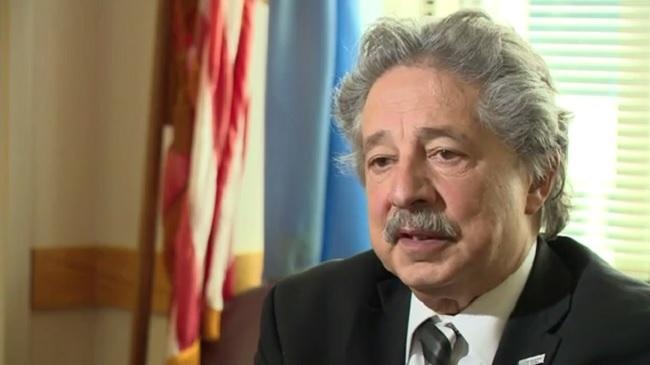Two Madison Common Council members — Mark Clear and David Ahrens — are proposing changes to city government that they say would better balance power between the Common Council and mayor. Mayor Paul Soglin says that the proposal would mean “drastic changes in the structure of city government.”
The package of changes proposed by alders would strengthen the Common Council’s ability to shape the budget and give the council president the power to make committee appointments, a power now held by the mayor. Citizen committee appointments would continue to be made by the mayor.
“There’s nothing specific about the timing of this,” Clear tells Madison365. “It’s something that has been percolating around the Council for many, many years. It’s because the way Madison works right now is a curiosity, at best. The appointment process and the budget process is odd for a legislative body and unique for the state of Wisconsin.”

The Common Council had an organizational committee Subcommittee on Strategic Plan and Priorities that was looking at priorities and process and the conversation bubbled up again. Out of that came key reforms that include:
◆ The council president, rather than the mayor, will make all alder appointments to city committees. The mayor would continue to make citizen appointments.
◆ The Board of Estimates will be renamed the Finance Committee and all members will be appointed by the council president. The mayor would be removed as chairman and a voting member and the seven committee members, appointed by the council president, would elect a chairman.
◆ Council leadership will serve two-year terms instead of the current one-year term.
◆ The Common Council Organizational Committee will be renamed the Common Council Executive Committee.
“We feel that it addresses an imbalance in power between the executive branch and the legislative branch where you have the executive making appointments to legislative committees which is highly unusual,” says Clear, a former council president and pro tem. “In most cases it’s the legislative leadership that makes legislative appointments.
“The other thing that is odd is that you have an executive that creates the budget and then sends it for review to a committee that the executive appointed and that the executive chairs,” Clear adds. “So, that creates an imbalance in power. Once the executive’s work is done, then it should become a legislative process.”
In a press conference yesterday afternoon, Mayor Paul Soglin fought back against the plan.
“When I returned to office in 2011, the city was in fiscal chaos; you have witnessed the City Council budget battles. Despite my efforts to bring responsibility to the financial process, our debt service is way too high. I don’t enjoy saying ‘no’ to so many requests — police stations, libraries, fire stations, road improvements,” Soglin added. “Several City Council members are unhappy with my refusal to spend every dollar in their individual districts … yes, your neighborhoods; but the reality is that the City Council went on an out-of-control spending spree from 2007-2011 without worrying about the necessary revenues and the consequences.”
Soglin said that new priorities emerge as we address the issues of diversity and that neighborhood and community centers become a higher priority. “As does a public market, which is making nutritious food accessible while locally creating new businesses and jobs,” he said.
“The point is that we cannot do everything at once,” Soglin added. “Trying to do too much is what created the mess, and, frankly, too many members of the City Council fail to grasp the gravity of the situation. Now, they have decided to get greater control over city finances by removing the mayor from the deliberative process.”
Clear says that there are no other cities that work like Madison currently does in terms of the financial process. “We have this strange structure called the ‘Board of Estimates.’ One of the problems we’re fixing is that we don’t know what the Board of Estimates means,” Clear says. “We’re renaming it to the Finance Committee because everybody knows what that does. It’s strange that it’s called that and it’s strange that it’s chaired by and appointed by the mayor.”
The actual legislation has to be now be drafted by the city attorney’s office and that could take a while. “This is pretty complicated stuff,” Clear says. “While it’s fairly easy to describe the changes, it’s much harder to write the legal language that’s required. It will take some time.”
In the meantime, there will be much public conversation around the issue. Soglin has publicly stated that he will oppose these proposals and work for their defeat. “Of significant concern is the rushed nature of the proposal, with no guidance from a citizen panel that usually reviews major government restructuring,” Soglin said.
“I don’t think it will be ready to be formerly introduced until May and then go through the legislative process in June and July,” Clear says. “The mayor has already pledged to veto it. Basically, we need 14 votes on the Council [to override a mayoral veto]. I’m feeling good about it. I think we will have support on the Council. The case can be made that this makes sense … that it truly rebalances the checks and balances between governments.”










